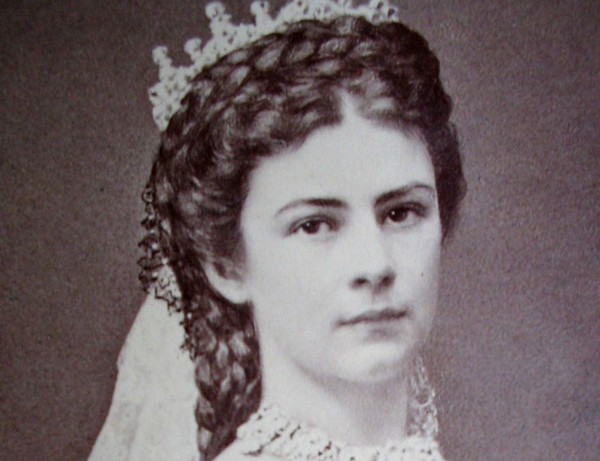
Long ago in a distant land, a 15-year-old girl lived happily, protected by her parents in the middle of nature. It happened that the emperor met her, and the next day he asked for her hand; a few months later they got married. If this were an old tale, the end would be “and they lived happily ever after”, but in fact, that's just the beginning of the story.
Once upon a time, there was an empress who was not happy. Her marriage wasn't happy; she would have preferred not marrying a stranger, but she was not allowed to reject the emperor; could a girl expect a greater honor? Her first-born child died at two; The Crown Prince committed suicide at thirty-two. The empress hated the court as much as she loved to travel and enjoy the outdoors; her ladies-in-waiting feared her tendency to take risks, which they had to share. The portraits show us that she was a beautiful woman, but they don't tell us that she was obsessed with her appearance. She probably misused her privileges to live as free as possible and she hardly discharged her duty as an empress; It was considered as an eccentric woman. She was murdered at sixty-one.
Elisabeth of Austria, I'm talking about her, was aware that she didn't fit into her world, not even into her time. For that reason she provided that her poems were guarded by the President of the Swiss Confederation and made public in 1950. Those poems were her diary; She had begun to write them in 1885 and interrupted them when his son died in 1889. She thought that in the mid-20th century nobody would take offence at her words and she would be better understood, but in 1950, the president of the Council of the Confederation opened the box and said something similar to "Well... Not yet". And the box was closed again. Das poetische Tagebuch, this was the name of the collection, was first published in 1984.
In 2016, soprano Nina Bernsteiner commissioned the Austrian composer Albin Fries to musicalize some of that poems; he wrote seventeen songs published as Lieder nach Texten der Kaiserin Elisabeth von Österreich, op. 50 and that's how I happened to know about the poems. Empress Elisabet has always interested me, beyond the idealized and kitschy portrait of Sissi; there are well-documented books that show a more real image, so I was not surprised to read sadness and uprooting in her poems. However, I didn't know about her sense of humor, and I thought I would share with you one of her caustic poems.
Elisabeth adored Heinrich Heine and used to imitate his style (and his irony). The song we're listening today (performed by Bernsteiner and pianist Ammiel Bushakevitz) sets to music a parody of a Heine's poem, well-known because of Schumann's Lied, Du bist wie eine Blume. We listened to the beautiful version of Florian Boesch and Malcolm Martineau in a somewhat crazy post; if you listen to both songs, you'll notice how Fries also quotes Schumann.
Elisabeth wrote her poem in 1886, in Ischl, one of the royal residences. It seems that on August 18 the birthday of Emperor Franz Josef I was celebrated, and Prince Rudolf and his wife, Princess Stéphanie attended the party. It also seems that Elisabeth and her daughter-in-law weren't on good terms, and the empress wrote in her diary a poem called "An ... (nach Heine)" ("To... (after Heine)") where she speaks ill of the Princess; its first verse is "Du bist nicht wie die Blume ("You are not like flowers"). The poem has two parts, each of three stanzas, but Albin Fries only musicalized the "lighter" first part; the second one tells, for example, about the Princess having a "wicked tongue" or being "poison-mouth". Lovely.
Maybe Sissi was not as sweet as they wanted us to believe!
Du bist nicht wie die Blume,
Nicht lieblich, hold und fein;
Auch fehlt dir jede Anmut
Und Charme noch obendrein.
Und hör' ich dich gar reden,
Schleicht Wehmut mir ins Herz;
Gefühllos in der Jugend,
Wirst du im Alter Erz.
Mir ist, als müsst' ich falten,
Zu Gott die Händ' und fleh'n,
Er möge gnädig walten,
Dass wir uns selten seh'n.
You are not like a flower,
Not lovely, fair and pure,
and you lack grace
And charm on top of that.
And I hear you talking
and sorrows slips into my heard;
Insensitive when young
you'll become stone-hearted when old.
I feel like I have to fold
my hands and implore God
He may have mercy and grant
That we seldom see each other.














Comments powered by CComment